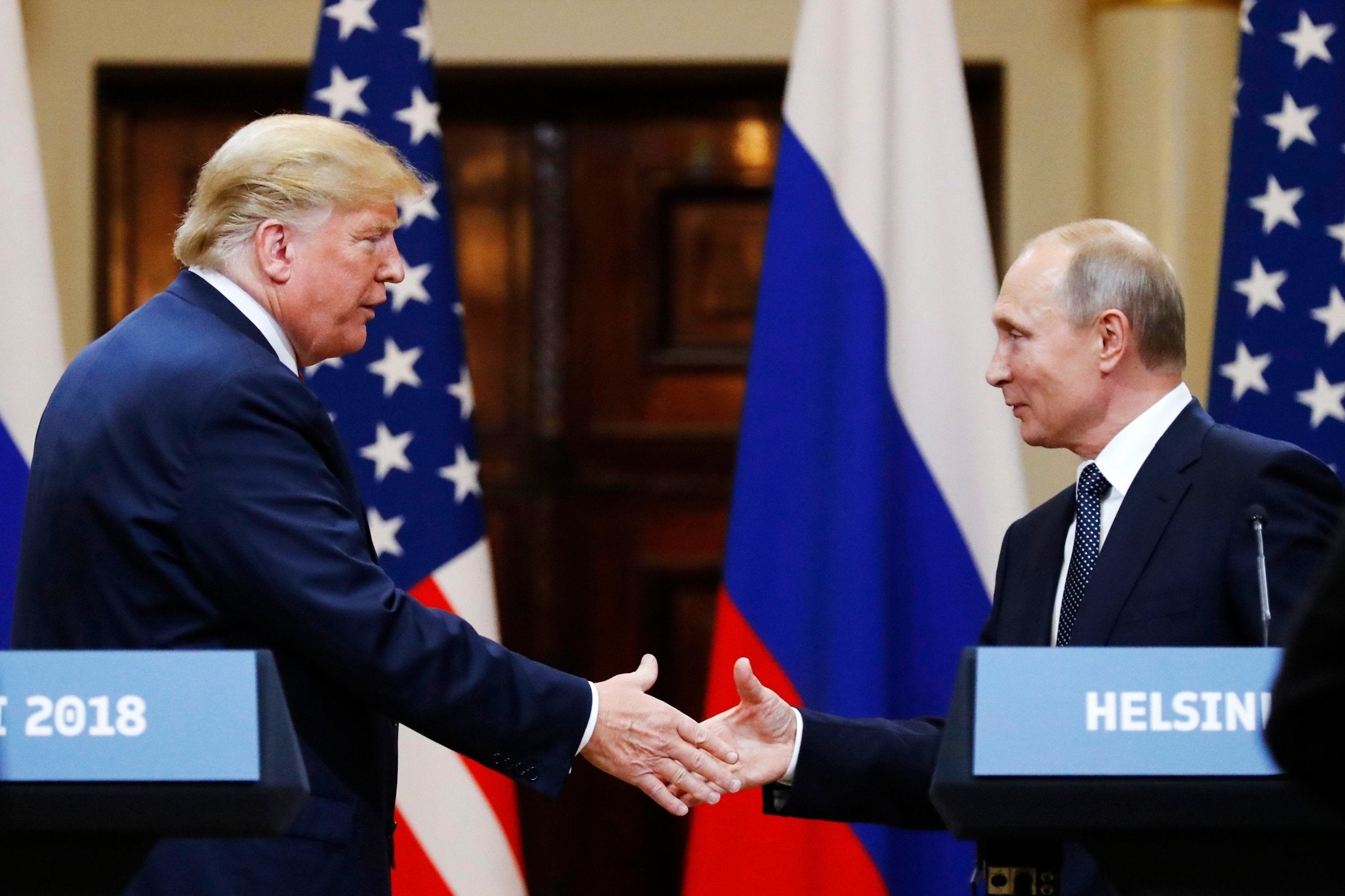FBI investigation into Trump's Russia ties was not politically biased despite president's claims, report finds

The FBI's investigation into contacts between Donald Trump's election campaign and Russia was justified and not politically biased, a report by the Justice Department's watchdog has found.
The findings refute Mr Trump's repeated claims of a deep-state "witch-hunt" to undermine his presidency and his assertion that the FBI illegally spied on his campaign.
The 434-page report, by the department's inspector general Michael Horowitz, says the so-called Crossfire Hurricane investigation was justified in eavesdropping on Carter Page, a former Trump campaign aide who had made several visits to Russia.
"We did not find documentary or testimonial evidence that political bias or improper motivation influenced the FBI's decision" to request surveillance warrants on Mr Page, it says.
However, the report highlighted a series of errors and misjudgments in the probe, which was eventually taken over by Robert Mueller.
When he released his report in April, Mr Mueller, a former director of the FBI, said he found no actionable evidence of collusion between the Trump campaign and Russia, but said he could not clear the president on the question of possible obstruction of justice.
William Barr, the attorney-general and a loyal ally of Mr Trump, has started a separate investigation into the origins of the Russia probe, headed by prosecutor John Durham.
Mr Barr himself rejected the inspector general's conclusion that there was sufficient evidence to open the investigation.
He said: "The inspector general's report now makes clear that the FBI launched an intrusive investigation of a US presidential campaign on the thinnest of suspicions that, in my view, were insufficient to justify the steps taken."
Democratic senator Richard Blumenthal said the report "completely demolished" some of Mr Trump's conspiracy theories about the investigation.
He said: "Clearly, there was a legitimate, factual basis; in fact the FBI had a moral imperative to begin this investigation."
The Crossfire Hurricane investigation began in July 2016 after the FBI learned that another former Trump campaign aide, George Papadopoulos, had been claiming Russia had dirt on Democratic presidential nominee Hillary Clinton in the form of stolen emails.
Those emails, which had been hacked from Democratic email accounts by Russian intelligence agents, were released by Wikileaks in the weeks before the election in what US officials say was an attempt to harm Mrs Clinton and help Mr Trump.
Mr Trump and his allies have repeatedly criticised the process by which the investigation into links between his election campaign and the Kremlin began because the FBI relied in part on opposition research by a former British intelligence officer, Christopher Steele, whose work was financed by Democrats and the Clinton campaign.

The Steele dossier reported a series of allegations, most notoriously that while in Russia Mr Trump watched prostitutes urinate on a bed once used by Barack Obama and his wife, something the president has angrily denied.
The watchdog found that the FBI had overstated the significance of Mr Steele's past work as an informant, and omitted information about one of his sources, who Mr Steele described as a "boaster" who "may engage in some embellishment".
Agencies contributed to this report
Join our commenting forum
Join thought-provoking conversations, follow other Independent readers and see their replies
Comments
Bookmark popover
Removed from bookmarks